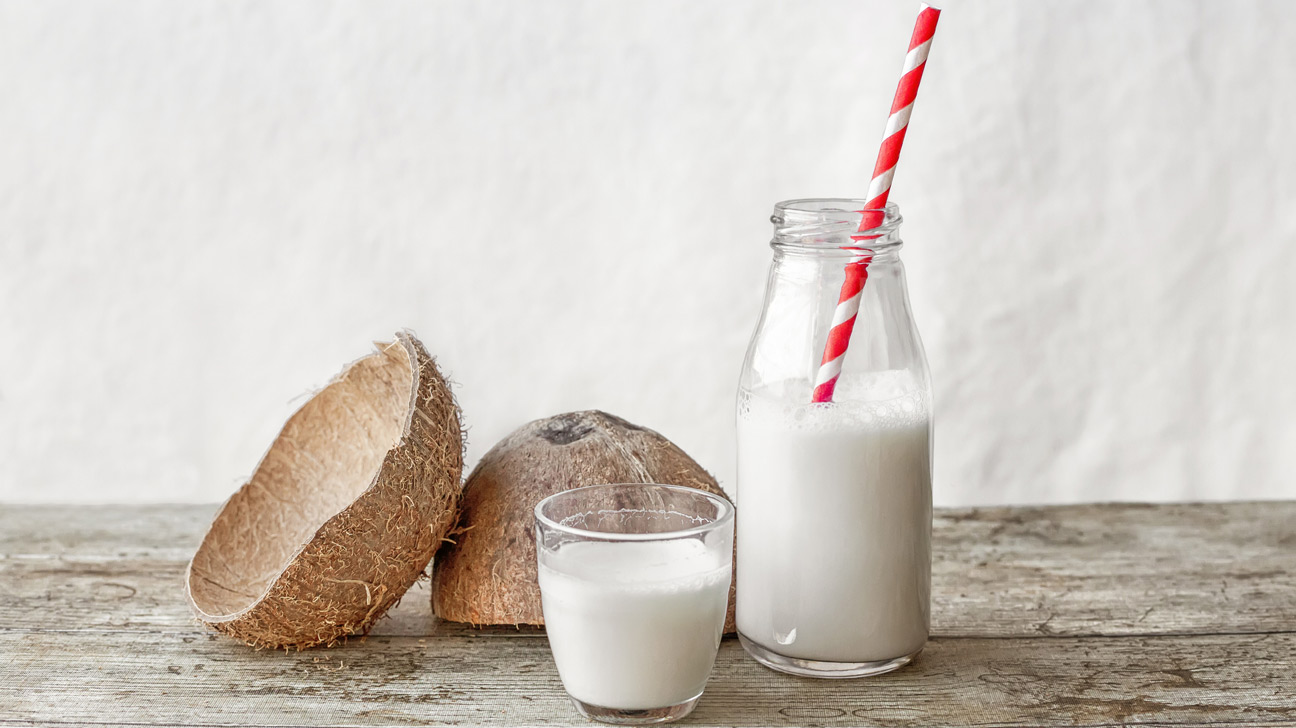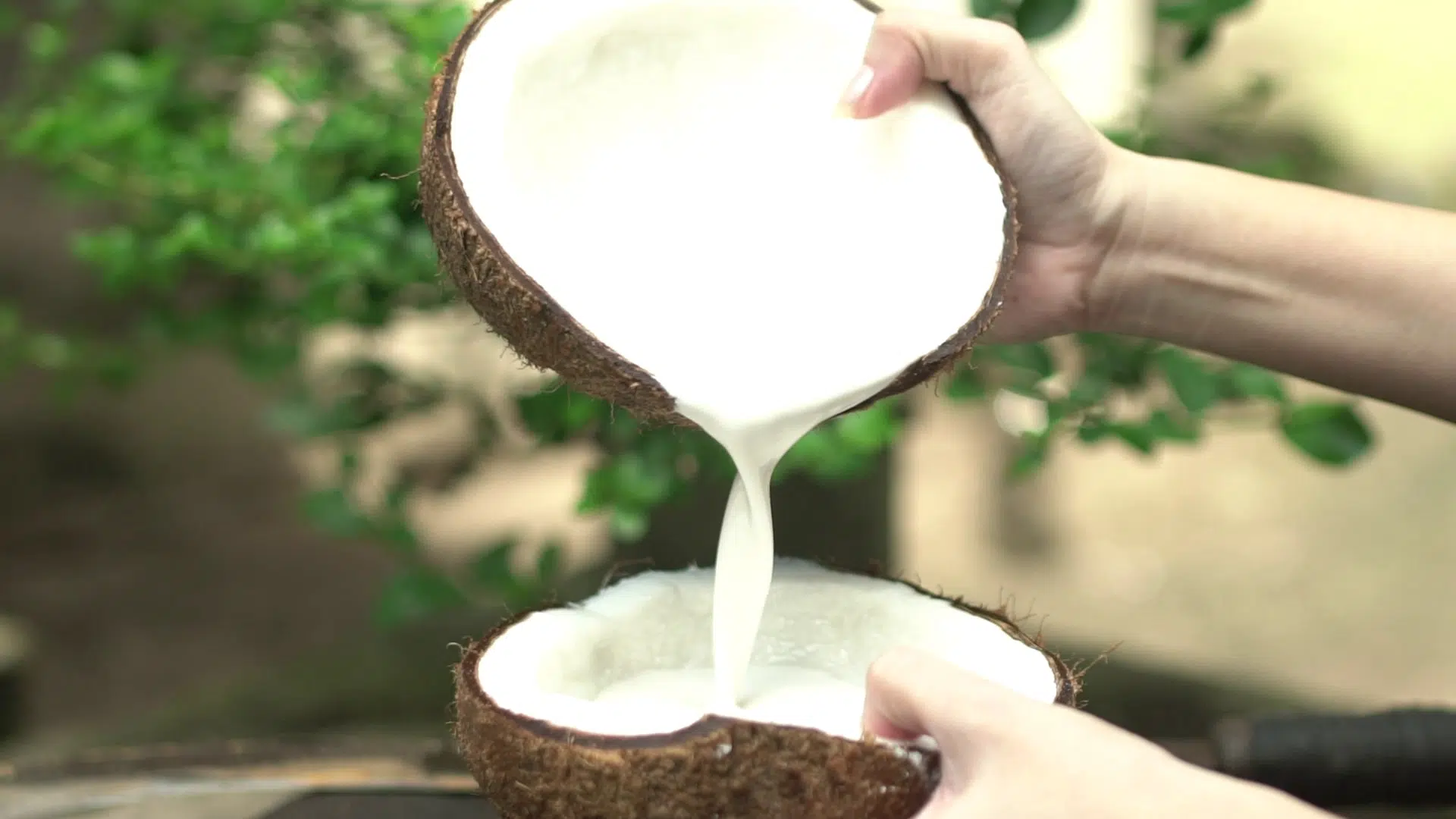Coconut milk, a creamy and flavorful liquid extracted from the grated pulp of mature coconuts, is a staple in many tropical cuisines and an increasingly popular ingredient worldwide. Its rich texture and unique taste make it a versatile addition to both sweet and savory dishes. Beyond its culinary uses, coconut milk also offers several nutritional benefits. This article explores the origins, production process, nutritional profile, culinary applications, and health benefits of coconut, providing a comprehensive understanding of this delightful ingredient.
Contents
Origins and Production Process Coconut Milk

Coconut milk has been used for centuries in tropical regions, particularly in Southeast Asia, the Caribbean, and parts of South America and Africa. The coconut tree, known as the “tree of life,” is highly valued in these cultures mariatogel for its versatility and the myriad of products it provides, including coconut.
Production Process
The production of coconut milk involves several steps:
- Harvesting: Mature coconuts, typically 10-12 months old, are harvested for their thick, white flesh.
- Grating: The coconut flesh is grated into fine pieces, either manually or using machinery.
- Extraction: The grated coconut is mixed with water and then pressed to extract the milk. This process can be repeated to obtain different consistencies of coconut:
- Thick Coconut Milk: The first pressing yields a rich and creamy milk, often used in desserts and curries.
- Thin Coconut Milk: Subsequent pressings produce a lighter milk, used for soups and stews.
- Straining: The extracted liquid is strained through cheesecloth or a fine mesh to remove any remaining coconut solids, resulting in smooth coconut milk.
- Packaging: The coconut milk is then packaged for sale, either in cans, cartons, or as a powder.
Nutritional Profile
Coconut milk is rich in essential nutrients and offers several health benefits. Its nutritional composition varies depending on the consistency (thick or thin) and any added ingredients. Here is an overview of the key nutrients found in coconut milk:
- Fats: Coconut milk is high in healthy fats, particularly medium-chain triglycerides (MCTs), which are easily absorbed and used by the body for energy.
- Vitamins: It contains vitamins C, E, B1, B3, B5, and B6, which are essential for various bodily functions, including immune support, skin health, and energy production.
- Minerals: Coconut milk is a good source of minerals such as iron, magnesium, potassium, phosphorus, and manganese. These minerals support bone health, muscle function, and overall metabolic processes.
- Fiber: While not as high in fiber as whole coconut flesh, coconut still provides some dietary fiber, aiding digestion and promoting satiety.
Culinary Applications

Coconut milk’s rich flavor and creamy texture make it a versatile ingredient in many culinary traditions. It is used in a wide variety of dishes, from savory curries to sweet desserts. Here are some popular culinary applications:
- Curries and Soups: Coconut is a key ingredient in many Asian and Caribbean curries, providing a creamy base that balances the heat of spices. It is also used in soups like Thai Tom Kha Gai, adding depth and richness to the broth.
- Stews and Sauces: In addition to curries, coconut milk is used in stews and sauces, particularly in tropical cuisines. It imparts a rich, slightly sweet flavor that complements meat, seafood, and vegetables.
- Desserts: Coconut milk is widely used in desserts, such as rice puddings, custards, and ice creams. Its natural sweetness and creamy texture make it a perfect dairy substitute in vegan and lactose-free recipes.
- Beverages: Coconut is an ingredient in various beverages, including smoothies, cocktails (like piña colada), and traditional drinks like Thai iced tea.
- Baking: It can be used in baking to add moisture and flavor to cakes, muffins, and bread. Coconut milk is also an excellent base for dairy-free whipped cream and frosting.
- Marinades and Dressings: Coconut milk can be used in marinades to tenderize and flavor meat. It is also an ingredient in salad dressings and dipping sauces, adding a tropical twist.
Health Benefits
Coconut milk offers several health benefits due to its nutrient-rich composition:

- Energy and Weight Management: The MCTs in coconut are metabolized differently from other fats, providing a quick source of energy and potentially aiding in weight management. MCTs can increase energy expenditure and promote the feeling of fullness, reducing overall calorie intake.
- Heart Health: While coconut is high in saturated fats, these fats are primarily MCTs, which may have a neutral or even beneficial effect on heart health. Some studies suggest that MCTs can improve cholesterol levels by increasing HDL (good) cholesterol.
- Digestive Health: Coconut milk contains fiber and other compounds that support digestive health. It can help improve gut motility, promote the growth of beneficial gut bacteria, and reduce symptoms of digestive disorders.
- Immune Support: The vitamins and minerals in coconut milk, particularly vitamin C, vitamin E, and magnesium, support the immune system. These nutrients have antioxidant properties that help protect the body from infections and inflammation.
- Bone Health: Coconut milk provides important minerals like calcium, phosphorus, and magnesium, which are essential for maintaining strong and healthy bones. Regular consumption can contribute to bone density and reduce the risk of osteoporosis.
- Skin and Hair Care: The fats and vitamins in coconut are beneficial for skin and hair health. Coconut can be used topically to moisturize and soothe the skin, and it is often included in hair care products for its hydrating properties.
Considerations and Moderation
While coconut milk offers numerous health benefits, it is also high in calories and fats, so it should be consumed in moderation. Here are some considerations for incorporating coconut into your diet:
- Portion Control: Be mindful of portion sizes, especially if you are watching your calorie intake. Using smaller amounts of coconut milk in recipes can still provide flavor and creaminess without excessive calories.
- Balance with Other Foods: Balance the use of coconut milk with other nutrient-dense foods, including fruits, vegetables, lean proteins, and whole grains, to ensure a well-rounded diet.
- Check for Additives: Some commercially available coconut products contain added sugars, preservatives, or thickeners. Check the ingredient list and choose products with minimal additives.
- Allergies and Sensitivities: While coconut allergies are rare, they can occur. If you have a known allergy to coconuts or experience any adverse reactions, avoid coconut milk and consult a healthcare professional.
Conclusion Coconut Milk
Coconut milk is a versatile and nutritious ingredient that has found its place in kitchens around the world. Its rich texture and unique flavor enhance a wide variety of dishes, from savory curries to sweet desserts. Beyond its culinary applications, coconut offers several health benefits, including improved energy levels, heart health, digestive support, and skin care. By incorporating coconut into your diet in moderation and balancing it with other healthy foods, you can enjoy its delicious taste and nutritional advantages. Whether you’re exploring new recipes or looking for dairy-free alternatives, coconut is a delightful addition to any meal.
Read More Article About “Dry White Wine: Exploring Its Unique Flavors and Aromas 2024“




